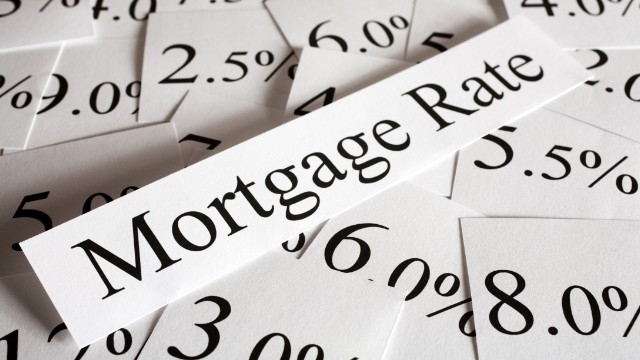President Donald Trump’s new economic proposal which involves a blanket 10% global tariff on everything imported has set off a flurry of speculation. Politically, the focus has been on foreign relations and trade, but now economic experts are looking at a more US-centric issue: mortgage rates. Tariffs, inflation, and housing prices are highly interconnected, and any change in trade policy can send ripples through the US housing market.
Is This a Tariff-Driven Inflation Spike?
Trump’s tariff plan adds a 35% tariff on Chinese products and a 24% tariff on Japanese imports. These actions, taken to shield American industries, could actually make consumer prices increase. As imported items rise in cost, ordinary Americans might be paying for pricier groceries, electronics, and even materials used to build their homes.
This surge in prices would cause further inflation, a trend that affects mortgage rates directly. When inflation increases, lenders want a better return, raising mortgage rates as a result. This is where the term “mortgage rates tariffs” starts to carry some substance. The link is no longer conjecture—higher tariffs can spell pricier home loans.
also read: US Stock Market Plunges After Trump’s Tariff Announcement
Experts Sound the Alarm
Nicole Rueth, Movement Mortgage’s senior VP, stressed in a CNET interview, “Buyers waiting for 3% rates again are wasting time. Those days are gone.” She explains that inflation, worldwide uncertainty, and bond market trends—not merely the Federal Reserve—are driving borrowing costs.
Redfin housing economist Chen Zhao seconded this fear, predicting that inflation may jump from its current 2.8% to as high as 4% by year’s end.
Tariffs and Construction: An Expensive Combo
A lot of the U.S. housing industry relies on foreign-sourced materials. Lumber, drywall, steel, and appliances frequently come from outside the country. Builders will pay more with the new tariffs. Most are likely to add those costs to homebuyers, making new houses more expensive.
9i Capital CEO Kevin Thompson explained to Newsweek, “Mortgage rates have brought the housing market to a crawl. It’s not the rates, it’s the combination of high home prices and high interest rates. If home prices were less expensive, perhaps the higher rates could be absorbed by buyers. But when both are high, it’s a recipe for disaster. Trump’s tariffs are just adding fuel to the fire.”
The Fed’s Dilemma
The Federal Reserve was seen as likely to start reducing interest rates as early as June. But with possible increases in inflation fueled by tariffs, those reductions might be delayed or reduced. Mortgage rates depend a great deal on the bond market, which responds rapidly to signs of inflation.
Danielle Hale, the chief economist for Realtor.com, was slightly more upbeat, saying the inflationary effect from tariffs might not be the greatest force behind interest rates. But most analysts are in agreement: rate cuts are more difficult when inflation is up, and that means mortgage rates could remain higher for the near future.
A Volatile Road Ahead
Melissa Cohn of William Raveis Mortgage captured the sentiment: “I expect to be on a mortgage rate roller coaster for the next few months.” In fact, homeowners, buyers, and investors can expect more of the same volatility.
The phrase “mortgage rates tariffs” is more than just an economic catchphrase—it’s fast becoming the new reality for Americans nationwide. Whether refinancing, searching for a home, or constructing one, this term could very well become the headline of your financial future.
As the political dust clears, the actual impact of Trump’s tariffs will become apparent. But for the moment, at least, this is certain: when tensions on global trade are up, so can mortgage rates—and that’s something no U.S. family can afford to ignore.








